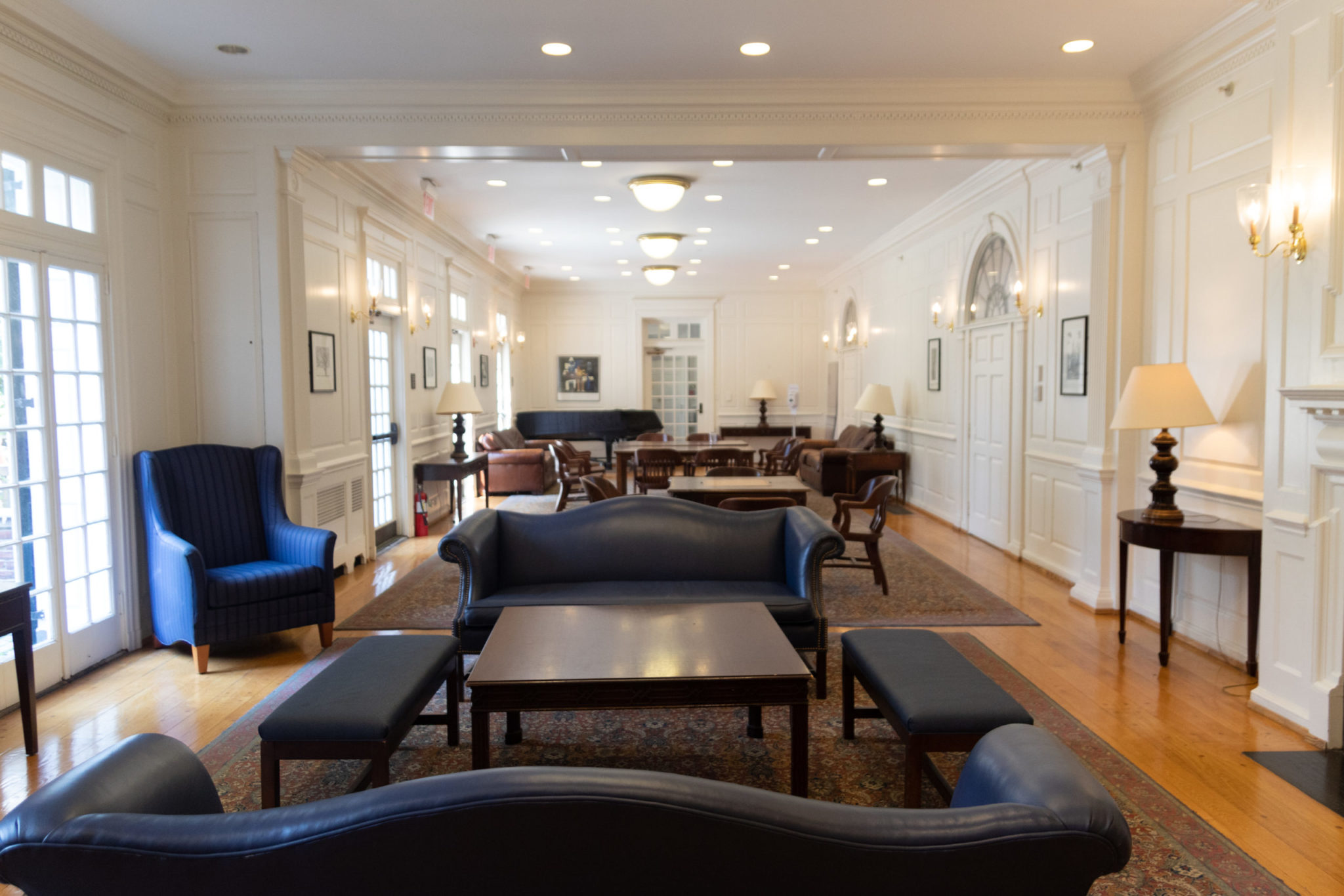Residential college councils hope to foster community, bridge class year divide
With greater potential for in-person events, Yale’s 14 residential college councils are hoping to unify students whose college experiences were disrupted by the COVID-19 pandemic.

Zoe Berg, Photo Editor
With campus at full capacity for the first time since March 2020, Yale’s residential college councils hope to draw students of different years together in the 2021-2022 academic year, fostering a sense of community within individual residential colleges.
Students elected to Yale’s 14 residential college councils organize events and initiatives within the colleges focused on strengthening college unity and alleviating academic stress. With greater potential for in-person events, members of the councils’ leadership are looking for ways to bring together members of residential colleges who were scattered around the world over the past two years, as students learned remotely or took leaves of absence.
“We’re trying to prioritize projects that make students feel at home again in residential colleges,” said Benjamin Franklin College Council President Grace Dietz ’24. “A lot of students had to leave in March 2020, and the terms on which they left were kind of traumatic. Leaving and never knowing when you’re going to come back and having that much uncertainty is scary. Planning events that let them rebuild their connection to the college and their friends is really important, so we’re just going forward and trying to plan for as much normalcy as possible.”
Prior to the onset of the pandemic, most of the residential college councils’ focus was directed towards hosting events that would draw as many students as possible. Now, however, Pierson College Council President Carson Menkes ’22 said these events would mostly be considered “superspreaders” of COVID-19.
Last year, residential college councils were limited to virtual events, or those that were hosted masked and socially distanced in residential college courtyards. Menkes said that the PCC focused on organizing virtual events or grab-and-go food options to ensure that the council maintained a presence in the college.
“I think that last year, we were frequently stuck trying to figure out what we could possibly do with virtual events and the various different classes being on or off-campus,” said Marc Bertoni ’23, president of the Trumbull College Council. “And while we found solutions, I could tell that people were restless for in-person events. Now this year, with the relaxed restrictions, we’ve been trying to plan many different in-person events.”
Bertoni added that the COVID-19 guidelines Yale initially set for the 2021-2022 academic year made planning those events difficult. The guidelines, which limited gatherings to 20 people indoors and 50 people outdoors, are subject to change, and Bertoni expressed hope that revised guidelines would allow for larger events. Yale plans to announce updates to these guidelines on Sept. 20.
In the meantime, Bertoni said that the Trumbull College Council has been focused on planning the “Trumball,” their annual fall dance; Rumbull in Trumbull, their fall festival; screenings; other social mixers and study breaks for midterms and finals.
Around campus, other residential college councils are planning similar events that vary in size and format.
“Something that the Head of College and the Dean, as well as PCC, really try to promote within Pierson is just figuring out ways to involve all Pierson students,” Menkes said. “I think PCC comes into that by doing a wide variety of events. If a big in-person dance formal isn’t for you, there’s other smaller, more intimate gatherings that we have.”
Dietz noted that safely organizing these events sometimes demands that the councils put “new spins on old traditions,” often by holding the celebrations outdoors.
Another focus of the residential college councils has been bringing together students from different class years who were separated after many students spent semesters away from New Haven during the last academic year.
“I think one of the best things college councils can do is to try to create communities beyond just class years,” Bertoni said. “Sometimes the college population feels very sectioned off by class years, and the events that college councils throw can help remove those barriers and create a college-wide community.”
The Hopper College Council is planning to organize a mixer for first years and sophomores in hopes of fostering friendships between the two class years, according to Social Activities Chair Julia Sulkowski ’24.
Dietz noted that juniors and seniors have had vastly different Yale experiences from first years and sophomores, most of whom began college during the COVID-19 pandemic. As a sophomore, Dietz herself has never attended a Yale unencumbered by COVID-19 restrictions, an experience that has shaped her perspective as president of the Benjamin Franklin College Council.
“I think it’s kind of cool, because you’re not shadowed by precedent, so new ideas are a lot easier,” Dietz told the News. “[But] we have nothing to work from, so it’s also kind of scary.”
According to Bertoni, funding for residential college councils comes directly from the individual Head of College Offices. The yearly budget for residential college councils typically turns over anew every academic year. However, Sulkowski explained that the Hopper College Council was able to carry over the leftover budget from the 2020-2021 academic year because the council’s capacity for in-person events was so limited by the pandemic.
Sulkowski said that the funding creates exciting opportunities for events within Grace Hopper College that would not have been possible last year.
“The colleges are such a good way to get things done because they’re such small microcosms of Yale that there aren’t as many hoops to jump through,” Sulkowski said. “It’s such an efficient way to connect the community.”
All students are welcome to attend meetings of their respective college councils.







